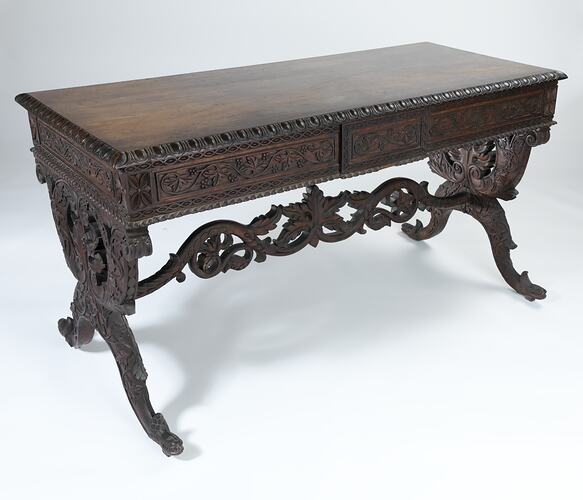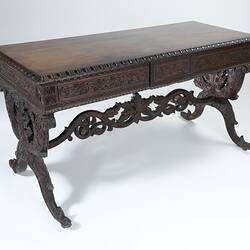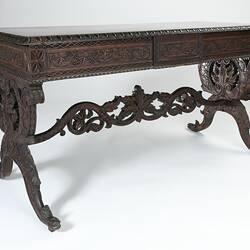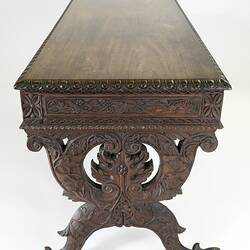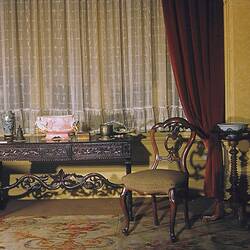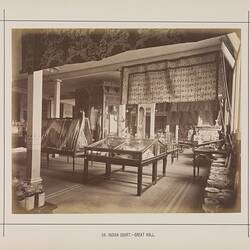Made of Indian rosewood circa 1880, this side table measures 67cm high, 128cm long and 57cm wide.
Among the items specifically listed in the inventory of the Twycross family home, Emmarine, at the time of John Twycross' death in 1889, is this 'carved Indian table'. It was situated in the Drawing Room, acting as a shelf for a pair of Japanese vases, two nautilus shells, a Japanese tea set, a sandalwood box and three lacquers. In the twentieth century, the table followed the family to their new home, an Edwardian weatherboard house in Elsternwick (also named Emmarine) where it sat in the bay window of the Drawing Room.
As with ivory objects, Indian artisans demonstrated a high degree of craftsmanship in skill with their displays of carved wooden furniture at the 1880 Melbourne International Exhibition. One of the most striking features of the Indian Court was a wonderfully carved showcase made of deodar wood from the north western provinces. The Madras firm of Deschampes & Co. demanded attention with their attractively carved drawing room cabinet, made from rosewood and sandalwood and intricately carved in high relief with scenes from Hindu mythology. The cabinet was awarded a silver First Order of Merit by the Jury in the 'Furniture and Accessories' section.
More Information
-
Keywords
Art Exhibitions, Royal Exhibition Building, furniture making
-
Authors
-
Article types
